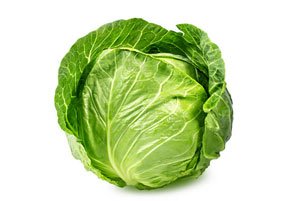
certified organic produce
what’s the difference?
The USDA’s National Organic Program (NOP) is a set of guidelines that ensure produce is actually organic based on a specific and approved production plan that follows the NOP requirements.
In addition, to give our buyers even more confidence, we went through the Texas Department of Agriculture for the certification process. By having two government agricultural agencies overlooking our operations, we felt our processes, and therefore our produce, would stand up to the high standards of our customers.
what we grow
Currently we grow the following seasonal produce:
Beets
Broccoli
Brussel Sprouts
Cabbages (Baby Choi and standard)
Pickling and Salad Cucumbers
Cantaloupe
Dill
Lettuces
Peppers (sweet and hot)
Okra
Radish
Spinach
Squash & Zucchini
Tomatoes
Watermelon (Black Diamond)
Let us know if you are looking for something particular
nutritional information
Note: Nutrition information is provided as a convenience as does not constitute medical or professional dietary advice.
We do the research and provide you with nutrition information on the produce we grow. This information has been pulled from a variety sources and put into a downloadable PDF. We encourage everyone to do their own research when making dietary decisions.
cucumbers
Great health benefit isn’t the first thing that usually comes to mind when chomping on a crisp cucumber. Whether in a salad, as a snack, or converted to those tasty dill pickles, the unassuming cucumber is packed with great nutritional benefits.
tomato
Royalty among the vegetables, the tomato is one of the most used and desired vegetable (fruit really). It has great nutritional and health benefits in addition to tasking great. We grow several varieties from which to choose.
okra
Let’s face it. Not everyone likes that slimy texture of okra. The good news is that there are so many ways to prepare and cook okra that you can disguise the texture and get those kiddos to eat a very healthy vegetable.
brussel sprouts
Originally this tasty and beneficial veggie came from Brussels, Belgium, from which it gained its name. Small is size, but big in nutritional benefits. Brussel Sprouts are a great addition to any healthy meal.
broccoli
Broccoli is another one of those great veggies that the kiddos just don’t seem to like. It is considered to be one of the most nutritious vegetables. When cooked properly, they are a delicious addition to any meal.
beets
You can’t beat those beets for great nutrition! They are related to chard and spinach. Unlike those great veggies, you can eat both the beetroot and the beet greens. The beet root and greens have their own nutritional profile.
zucchini
Zucchini is a summer favorite. Like many summer vegetables, it is packed with vitamins and minerals for a healthy body. The venerable squash variety can be included in many great recipes. Try zucchini bread one day!
Baby choi
Baby Choi cabbage is considered to be one of the healthiest forms of leafy green vegetables. A mainstay in Asian cuisine for years, this tender yet full bodied cabbage is great raw & cooked.
bell peppers
Natures technicolor. Known for their usually sweet taste, these colorful characters are a tasty snack or the centerpiece of a great dish. They are full of vitamins and healthy benefits.
cabbage
Cabbage is often overlooked as a vegetable rich in nutrient content like vitamins and minerals. Why? Not really sure, but you don’t hear folks bragging about their latest cabbage dish!
spinach
Few vegetables have gained as much notoriety as spinach. That’s because once upon a time there was a famous cartoon sailor named Popeye who always ate it.












